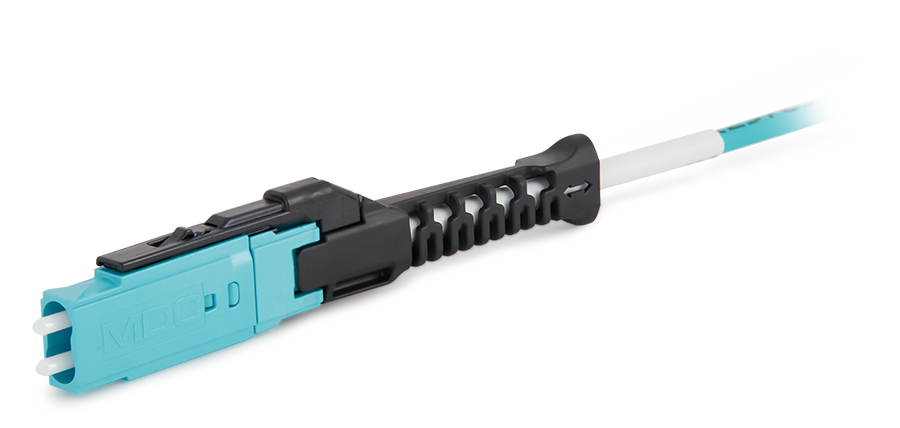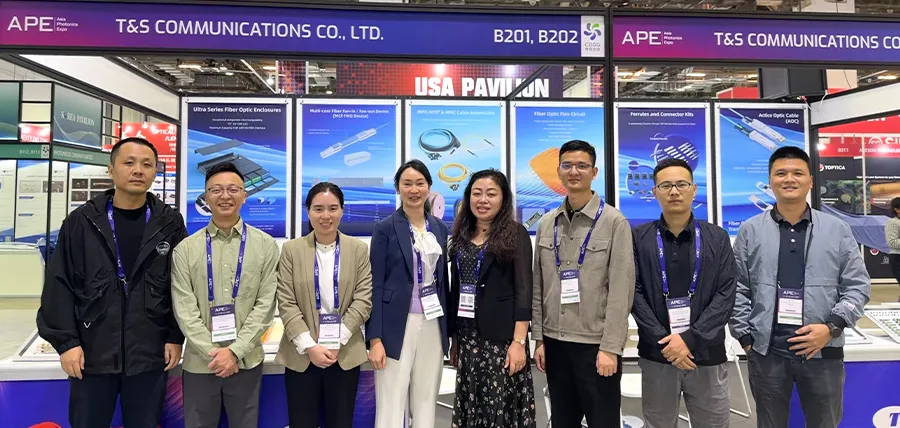Introduction:
In the rapidly evolving landscape of technology, the demand for faster and more reliable communication networks is escalating, especially with the widespread integration of Artificial Intelligence (AI) in various industries. One key player in meeting these demands is OM5 fiber optic cable, a cutting-edge solution that promises to power the era of artificial intelligence with its enhanced capabilities. This article delves into the significance of OM5 fiber in the context of AI and its impact on the future of communication infrastructure.
Understanding OM5 Fiber:
OM5, or "Optical Multimode 5," is a type of multimode optical fiber cable designed to support wavelengths in the range of 850 to 953 nanometers. It is an improved version of its predecessor, OM4, offering greater bandwidth and efficiency in transmitting data over short distances. OM5 is particularly well-suited for data center and enterprise environments, providing the high speeds and low latency required for applications like cloud computing and artificial intelligence.
.png)
| OM1 | OM2 | OM3 | OM4 | OM5 |
Standard | ISO 11801 | ISO 11801 | ISO 11801 | TIA 492AAAD | TIA-492AAAE |
Jacket Color | orange | orange | aqua | aqua | lime green |
Core Diameter | 62.5μm | 50μm | 50μm | 50μm | 50μm |
Light Source | LED | LED | VCSEL | VCSEL | VCSEL |
Key Features and Advantages:
Wavelength Division Multiplexing (WDM):OM5 fiber supports Wavelength Division Multiplexing,5g WDM, allowing multiple signals to be transmitted simultaneously over different wavelengths. WDM in optical fiber enables the efficient use of available bandwidth, a crucial factor in supporting the data-intensive requirements of AI applications.
Higher Bandwidth:OM5 fiber offers higher bandwidth compared to previous generations. This increased capacity is essential for handling the massive amounts of data generated and processed by AI algorithms, facilitating seamless communication within AI-driven systems.
Low Latency:In AI applications, especially real-time processing scenarios, low latency is paramount. OM5 fiber's ability to transmit data at high speeds with minimal delay makes it an ideal choice for environments where split-second decision-making is crucial.
Future-Proofing Networks:As AI technologies continue to advance, the demand for faster and more reliable communication infrastructure will persist. OM5 fiber provides a future-proof solution by offering the scalability needed to accommodate evolving AI applications and the increasing volume of data they generate.
Applications in AI:

Data Centers:OM5 fiber is particularly well-suited for the interconnectivity needs of data centers where AI computations often take place. Its high bandwidth and low latency contribute to the efficiency of data transfer between servers and storage, supporting the seamless operation of AI algorithms.
High-Performance Computing (HPC): In HPC environments, where complex AI simulations and modeling occur, the capabilities of OM5 fiber are crucial. It ensures that the vast amounts of data involved in these computations can be transmitted quickly and reliably.
Edge Computing: With the rise of edge computing in AI, where processing occurs closer to the data source, OM5 fiber plays a pivotal role. Its low-latency characteristics make it an ideal choice for ensuring real-time communication between edge devices and centralized AI systems.
Conclusion:
OM5 fiber stands at the forefront of the technological revolution, providing the necessary infrastructure to support the growing demands of artificial intelligence. As AI applications become more pervasive across industries, the significance of reliable and high-performance communication networks cannot be overstated. OM5 fiber's enhanced features, including higher bandwidth, low latency, and support for Wavelength Division Multiplexing, position it as a key enabler in powering the era of artificial intelligence, ensuring that our communication networks are ready to meet the challenges of the future.


 Fiber Optic Flex Circuit (FOFC)
Advanced Simulation & Optimization, High Positioning Accuracy, Flexible Customization, Rigorous Reliability Testing
Fiber Optic Flex Circuit (FOFC)
Advanced Simulation & Optimization, High Positioning Accuracy, Flexible Customization, Rigorous Reliability Testing MDC Solution
US Conec's MDC connector is a Very Small Form Factor (VSFF) duplex optical connector, expertly designed for terminating single-mode and multimode fiber cables with diameters up to 2.0mm.
MDC Solution
US Conec's MDC connector is a Very Small Form Factor (VSFF) duplex optical connector, expertly designed for terminating single-mode and multimode fiber cables with diameters up to 2.0mm. MMC Solution
US Conec's Very Small Form Factor (VSFF) multi-fiber optical connector that redefines high-density connectivity with its cutting-edge TMT ferrule technology and intuitive Direct-Conec™ push-pull boot design.
MMC Solution
US Conec's Very Small Form Factor (VSFF) multi-fiber optical connector that redefines high-density connectivity with its cutting-edge TMT ferrule technology and intuitive Direct-Conec™ push-pull boot design. EN
EN
 jp
jp  fr
fr  es
es  it
it  ru
ru  pt
pt  ar
ar  el
el  nl
nl 

.png)





_and_High-Reflection_(HR)_Optical_Coatings.webp)